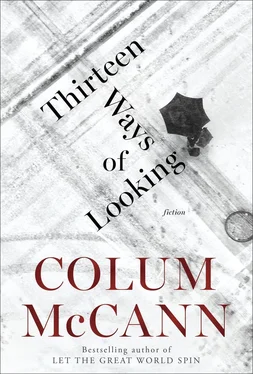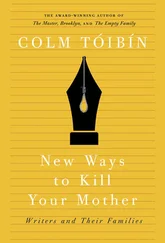The court will be told that the whereabouts of Dandinho are unknown, he is thought to be in Rio de Janeiro with a wife and three children, although it is also possible that he was spotted working in a restaurant in Toronto, and he may also have been seen in a barbecue restaurant in South Carolina. They will hear that all attempts to contact him after the initial interrogations were impossible. The defense will claim that without Dandinho there is no case. The prosecution will say that the evidence is clear-cut, and Dandinho clearly aided in the crime, underlined by his subsequent disappearance. The court will call on Sally James who will have just returned from Tobago for a week with her nephew to settle her financial affairs. She will be polite and confused and she will carry a little handkerchief to dab her eyes. They will call on Maria Casillias who will testify to the fact that, yes, she is currently in the process of bringing a multimillion-dollar lawsuit against the Barner Funds, though settlement is imminent. She will say that, yes, she told her father about losing her job. She will admit that, yes, she mentioned Elliot’s name. But she will say that, no, she never told him of the affair. And she will say that he never displayed any anger, she has never seen him raise a fist to anyone, least of all an old man, there is simply no way her father could have done such a thing. She will say that it’s much more likely that Elliot came out of the snow and punched his own father, he is that sort of man. The court will hear an objection. She will say that, even if it wasn’t Elliot, the old man probably slipped, that is the logical thing, it was snowing, can’t you see that he slipped, didn’t they say he had two glasses of wine? The judge will instruct her, quietly, to limit her emotions. She will step down from the stand, glancing at her father, and then turn away when her ex-husband emerges from the gallery to hold her hand.
The court will call on Pedro who, on his attorney’s advice, will not testify. He will sit in the courtroom, stone-faced, gentle, unmoving, a hard man to read. The jurors will wait and they will listen. They will weigh up notions of truth and lies — the truth with its border emptiness, and lies with their standard narrative conventions. They will trawl through the vast compendium of facts and figures and conjecture. It will be, to them, like trying to mine for light in the darkness, working in shafts, pockets, seams, chutes. The judge will instruct the jury members of their responsibilities and they will retire to deliberate. They will watch — once again — the footage of Mendelssohn’s fall outside the restaurant. They will watch, too, the footage of Pedro and Dandinho in the kitchen. They will ask to see it again and again: each time it appears to them differently. They will freeze Mendelssohn in midfall and that image itself will become the screensaver upon their imaginations: they will wake with it for many days, weeks, even months afterward.
Twelve days of testimony, then the verdict. It is captured on video of course. A high angle designed not to include the faces of the jurors. The wood-paneled room is airy and spacious. The judge is seated high at the front. The Star-Spangled Banner on one side of him. The New York State flag on the other. The court reporter to the judge’s right. The lawyers set up on opposite sides of each other. A sense that the room has been here forever, set down in aspic, a place that will never change.
There is a courtroom window right behind Pedro Jiménez. When he stands, he blocks out some of the light. The lens takes a moment to adjust. It flares and comes back into focus. His head is bowed. His hands are clasped at his waist. His suit is a hopeful blue. He waits as the jury forewoman steps forth. He closes his eyes while pronouncement is read out.
The sky outside is an immense sheet of gray. There is no movement in the clouds at all.
More cameras in the city than birds in the sky.
What Time Is It Now, Where You Are?
1
He had agreed in spring to write a short story for the New Year’s Eve edition of a newspaper magazine. An easy enough task, he thought at first. In late May he settled down to sketch out a few images that might work, but soon found himself struggling, adrift. For a couple of weeks in early summer he cast about, chased ideas and paragraphs, left a few hanging, found himself postponing the assignment, putting it to the back of his mind. Occasionally he pulled his notes out again, then abandoned them once more.
He wondered how he would ever push into the territory of a New Year’s Eve story — create a series of fireworks perhaps, drop a mirrored ball in a city, or allow snow to slowly scatter across the face of a windowpane?
All the beginnings he attempted — scribbled down in notebooks — wrote themselves into the dark.
2
In early summer he landed on the idea that he could perhaps defy his own notions of what a New Year’s Eve story could achieve and tell a military tale, perhaps the portrait of a soldier somewhere far away, a young American, say, in a distant land. He could find himself, say, in a barracks on New Year’s Eve in Afghanistan, the simple notion of a Marine — let’s say a young woman, slightly exhausted by war, sitting on the edge of a valley, in the cold, surrounded by sandbags, in the vast quiet, looking eastward, under a steel mesh of stars, all silence, not even the thrup of machine-gun fire in the distance, the grim perimeter of the soldier’s reality set against the possibility of what might be happening elsewhere, say, at home in South Carolina, say, a relentless suburb of no great distinction, say, a house gone slightly sour with the years, say, a broken drainpipe hanging down from the garage, say, a boy in the driveway, a young boy, in a striped shirt and torn jeans, with a bicycle lying forlorn at his feet, her brother, or her cousin, or perhaps even her son, yes, maybe her son.
3
Looking out into the Afghan night — although it would be better to be specific, and she could be facing the gothic dark of the Kerengal Valley, maybe even the ridge over Loi Kolay Village — she would draw herself into the savagery found at the outpost of every war, several layers of black pressing down on the already-dark mountains, an area where even the stunted trees might seem as if they want to step off the cliffs and hurtle themselves to the valley floor, the darkness made again more visible by the layer of frost covering everything, the sandbags, the steel rebars, the machine gun, a Browning M-57, the impossible stretch of distance, the enormity of black sky, with everything so cold that the young Marine, let’s call her Sandi, wears a balaclava over her face, under her helmet, and the tip-ends of Sandi’s eyelashes have frozen and her lungs feel thick with ice and when she looks through the small gap in the sandbags her teeth chatter so much that she is afraid she might chip them, a personal dread, since Sandi is hipheavy and small-breasted and unpretty in her own eyes, and twenty-six years old and feeling every single day of it, but proud of her strong white teeth, so that when she takes the upper lip of the balaclava and stretches it down across her mouth, the fabric tastes hard and rough and synthetic against her tongue.
4
Sandi sits alone in her rocky outpost. Unlikely of course, but he knows a few Marines back in New York, and he has heard their stories, and he is well aware that reality so often trumps invention, so he justifies her aloneness with the idea that a New Year’s Eve party is taking place in the village barracks below, and Sandi has agreed to give the other Marines a break, that she will take the post alone for an hour while midnight tips over, while the ball drops distantly, because everyone in Sandi’s unit knows that Sandi is decent, Sandi is cool, Sandi knows the score, and, let’s be honest, Sandi likes her privacy, and she has been given special access to a satellite phone that she can use at the stroke of midnight, since who wants to be alone on New Year’s Eve without a way to at least call home and say — and what is Sandi going to say?
Читать дальше












